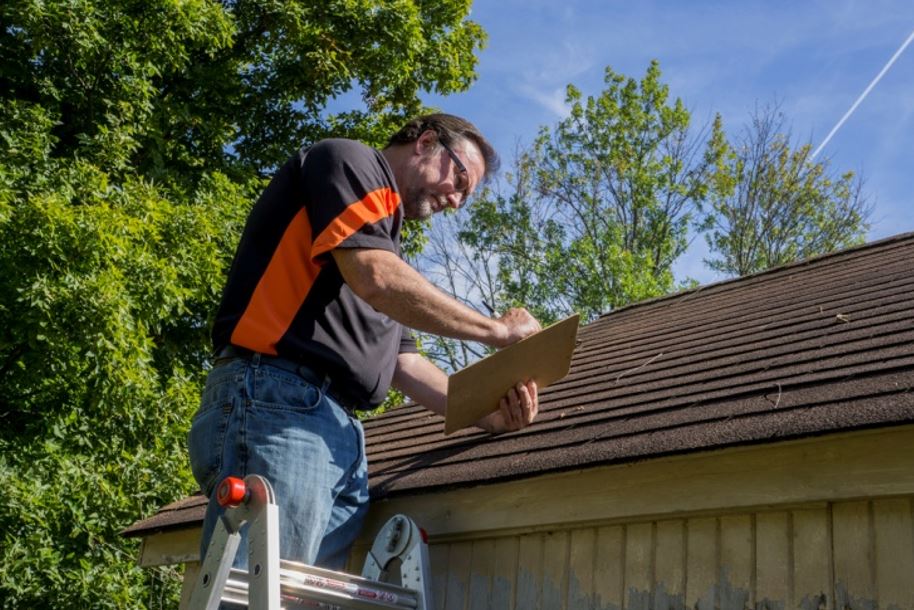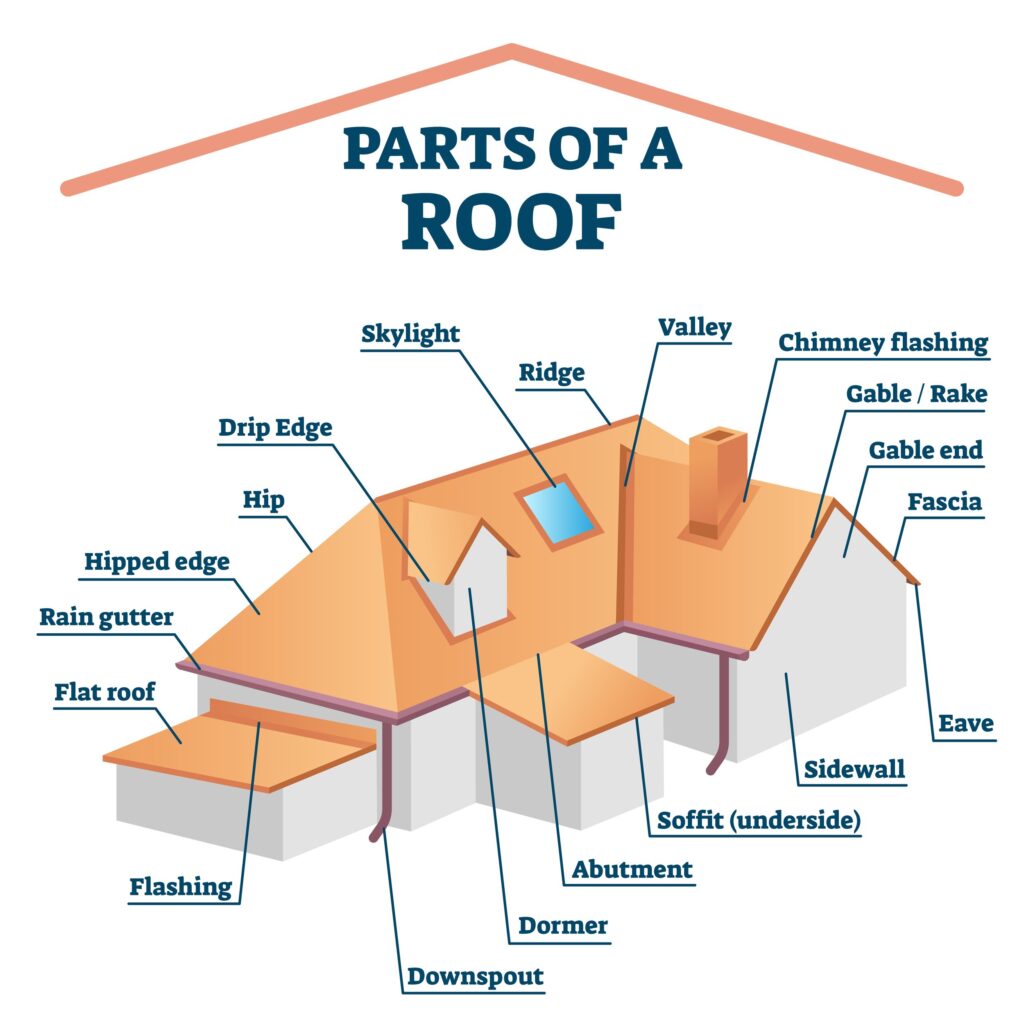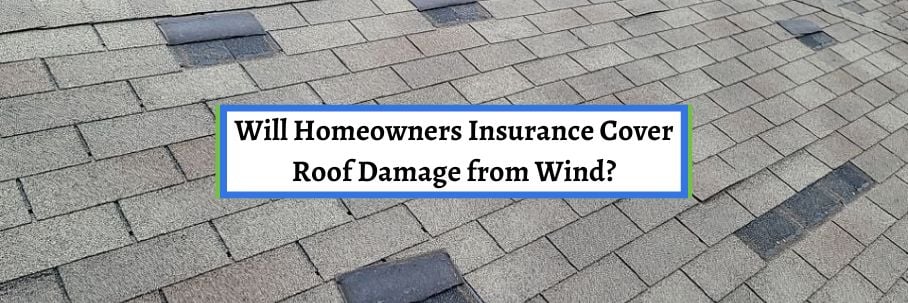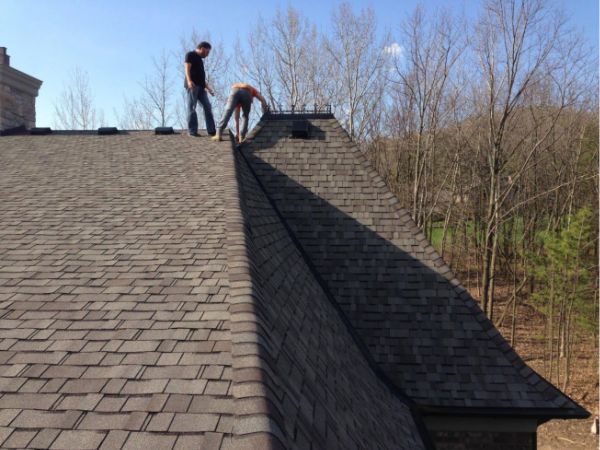You may be wondering whether roof inspections are mandatory in Florida. This article aims to shed light on this topic and provide you with valuable information. Whether you are a homeowner or someone interested in buying a property in the Sunshine State, understanding the regulations regarding roof inspections can help you make informed decisions. So, let’s dive into the requirements and considerations when it comes to inspecting roofs in Florida.
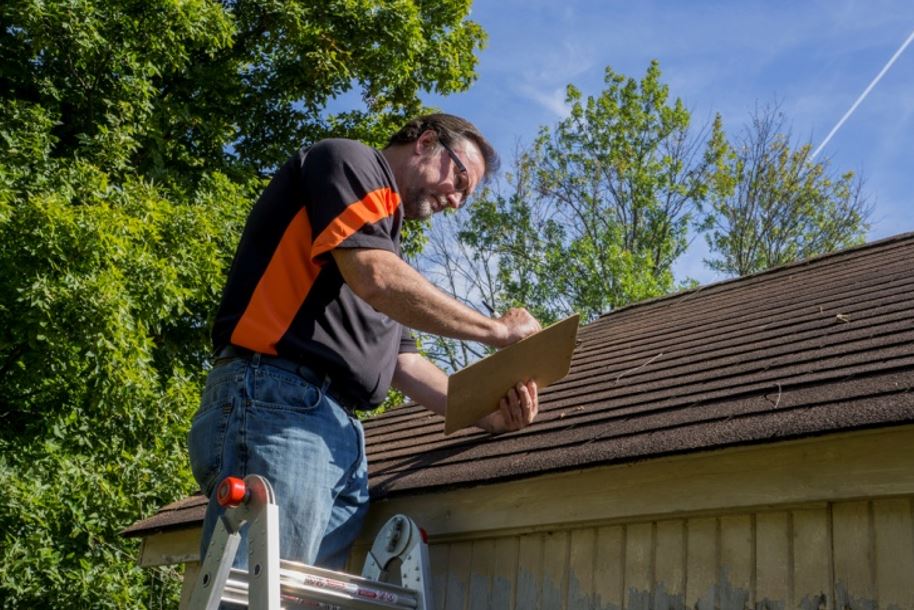

What are Roof Inspections?
Roof inspections are comprehensive evaluations of the condition and integrity of a roof. They are typically conducted by professional inspectors who are trained to identify any potential issues or weaknesses in the roofing system. These inspections involve a thorough examination of the roof’s structure, materials, and overall functionality.
Definition
A roof inspection involves a detailed examination of the roof’s interior and exterior components, including the roofing materials, gutters, flashing, vents, and skylights. The inspector will assess the roof’s overall condition, identify any signs of damage or wear, and suggest any necessary repairs or maintenance.
Purpose
The primary purpose of a roof inspection is to ensure the safety and functionality of the roof. By identifying and addressing any existing or potential issues, roof inspections help to prevent costly repairs and structural damage. Additionally, regular roof inspections can help homeowners maintain the validity of their insurance policies and comply with building codes and regulations.
Florida Building Codes and Regulations
Florida has specific building codes and regulations that govern the construction and maintenance of roofs. These regulations are in place to ensure that roofs can withstand the region’s unique climate and the potential hazards it poses, such as high winds and hurricanes.
Building Codes
Florida’s building codes require that roofs be constructed and maintained to withstand specific wind speeds and uplift forces. These codes aim to safeguard homes and buildings against the destructive power of hurricanes and tropical storms. By adhering to these codes, homeowners can ensure the structural integrity and longevity of their roofs.
Roofing Regulations
In addition to building codes, Florida has specific roofing regulations that govern the installation and maintenance of roofs. These regulations cover various aspects, such as the type and quality of roofing materials, proper installation methods, and required inspections. It is crucial for homeowners to be aware of and comply with these regulations to avoid any legal repercussions and ensure the safety and efficiency of their roofing systems.
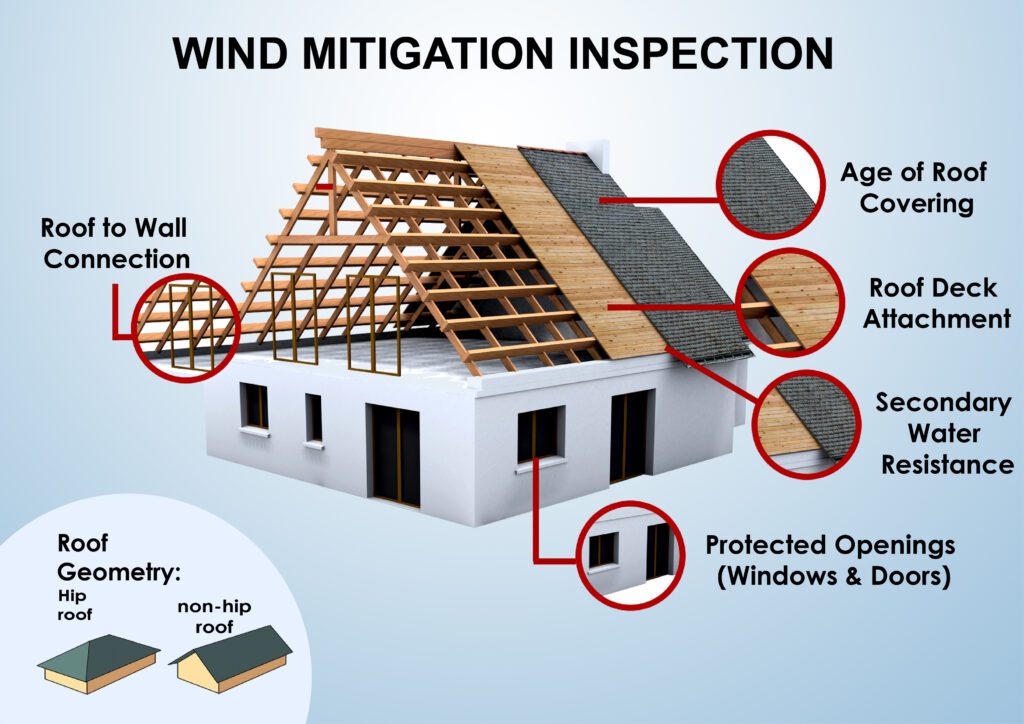

Insurance Requirements
Insurance plays a vital role in protecting homeowners from financial loss due to roof damage. In Florida, there are specific insurance requirements that homeowners must meet to secure coverage for their roofs and ensure their claims will be honored.
Homeowners Insurance
Most homeowners in Florida have insurance policies that cover their homes and roofs. However, insurance companies often require regular roof inspections to ensure that the roof is well-maintained and not at high risk of damage. Failure to comply with these requirements may result in the denial of insurance claims or the cancellation of the policy.
Wind Mitigation Inspections
Wind mitigation inspections are a specific type of roof inspection that focuses on assessing a roof’s ability to withstand high winds and hurricanes. These inspections typically involve a detailed examination of the roof’s construction, materials, and reinforcements. Homeowners who can demonstrate that their roofs meet certain wind mitigation standards may be eligible for insurance premium discounts.
Residential Roof Inspections
Residential roof inspections are crucial for maintaining the safety and integrity of homes in Florida. There are several instances when residential roof inspections are required or highly recommended.
New Construction
When building a new home in Florida, a roof inspection is typically required before the final approval of the construction permits. This inspection ensures that the roof has been properly installed according to the building codes and regulations. It is essential to hire a qualified inspector to conduct this inspection and provide the necessary documentation for permit approvals.
Re-Roofing Projects
If you are planning to replace your existing roof, a roof inspection is essential before the re-roofing process. This inspection allows the inspector to assess the condition of the current roof and identify any underlying issues that might need to be addressed before the installation of the new roof. It is crucial to address these issues to prevent potential problems and ensure the longevity of the new roof.
Change of Ownership
When buying or selling a home in Florida, it is highly recommended to have a roof inspection done as part of the due diligence process. This inspection provides the buyer with valuable information about the condition of the roof and any potential issues that may need to be addressed. It also offers peace of mind to both the buyer and seller, ensuring transparency and fairness in the real estate transaction.
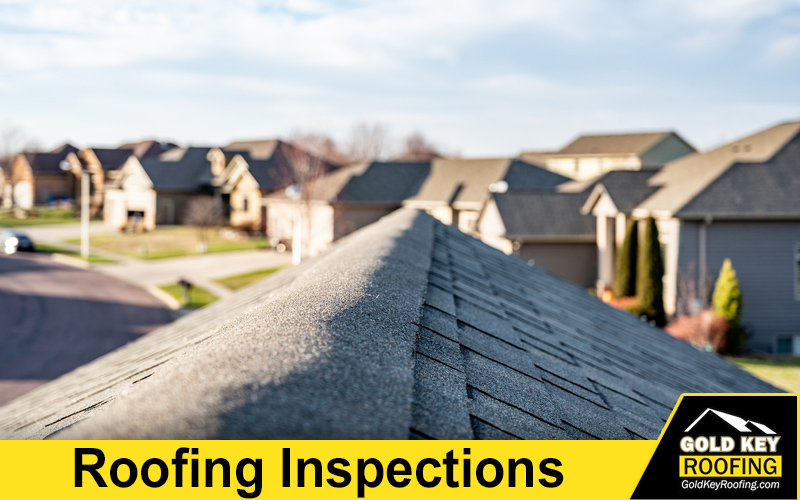

Commercial Roof Inspections
Commercial buildings in Florida also require regular roof inspections to ensure the safety and functionality of the roofing systems. Commercial roof inspections are especially important due to the typically larger size and complexity of the roofs found on commercial properties.
Building Occupancy
Before a commercial building is occupied, it is often required to undergo a thorough roof inspection. This inspection ensures that the roof is in good condition and free from any immediate safety hazards. Additionally, it enables the building owner to address any necessary repairs or maintenance before tenants move in, avoiding disruptions and potential liabilities.
Property Management
Commercial property owners and managers have a responsibility to maintain the safety and functionality of their buildings’ roofs. Regular roof inspections are necessary to identify any damage, leaks, or weakened areas that may require immediate attention. By conducting routine inspections, property owners can address issues promptly and prevent larger problems that may result in costly repairs or liabilities.
Local Government and Municipality Regulations
In addition to state building codes and regulations, local governments and municipalities in Florida have their own ordinances and permitting processes related to roof inspections. It is crucial for homeowners and contractors to be familiar with these local regulations to ensure compliance and avoid any penalties or complications.
City and County Ordinances
Cities and counties in Florida may have their own ordinances regarding roof inspections. These ordinances may specify the frequency of inspections, the qualifications of inspectors, and any additional requirements that must be met. It is important to consult with the local building department or municipality to determine the specific regulations applicable to your area.
Permitting Processes
Permits are often required for new roof installations, re-roofing projects, and other significant repairs or modifications to the roof. The permitting process typically involves submitting detailed plans, obtaining approvals, and scheduling inspections at various stages of the project. It is essential to obtain the necessary permits and schedule the inspections to ensure compliance with local regulations and the successful completion of the project.
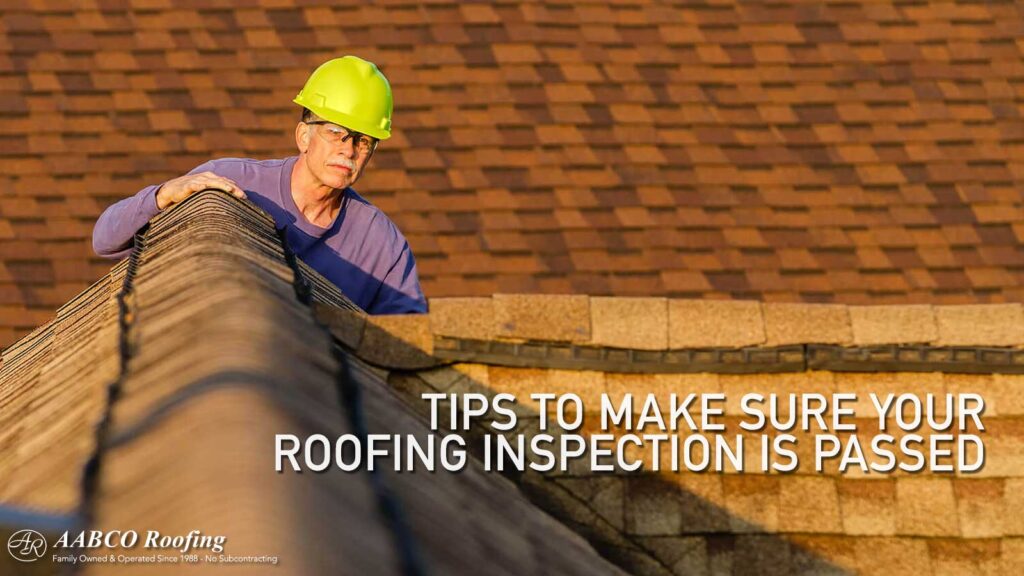

Roof Inspection Frequency
The frequency of roof inspections in Florida depends on various factors, including the age and condition of the roof, the type of building, and any specific requirements imposed by insurance companies or local regulations.
Recommended Timeframes
As a general guideline, it is recommended to have a roof inspection conducted at least once every two years for residential properties. However, in areas prone to severe weather or with older roofs, more frequent inspections may be necessary. Commercial buildings often require more frequent inspections, ranging from once a year to biannually, depending on the type of building and its usage.
Age and Condition Factors
The age and condition of the roof are significant factors in determining the inspection frequency. Older roofs are more susceptible to wear and damage, and therefore may require more frequent inspections. Additionally, roofs that have experienced significant weather events, such as hurricanes or heavy storms, may need to be inspected more frequently to assess their condition and ensure proper maintenance.
Roof Inspection Process
The roof inspection process typically involves several key steps, from finding a qualified inspector to understanding the costs and what to expect during the inspection.
Finding a Qualified Inspector
When searching for a roof inspector, it is important to choose a qualified and experienced professional. Look for inspectors who are licensed and insured, have a good reputation, and specialize in the type of roof and inspection you require. Asking for recommendations, checking online reviews, and verifying credentials can help you find a reputable inspector to perform a thorough and reliable inspection.
What to Expect
During a roof inspection, the inspector will thoroughly examine the roof’s components, both from the inside and outside of the property. They will look for signs of damage, wear, leaks, and any other issues that may compromise the roof’s integrity. The inspector may also perform tests, such as a water pressure test or moisture detection, to identify hidden problems. After the inspection, the inspector will provide a detailed report outlining their findings and any recommendations for necessary repairs or maintenance.
Costs
The cost of a roof inspection in Florida can vary depending on various factors, such as the type and size of the building, the complexity of the roof, and the qualifications of the inspector. On average, residential roof inspections can range from $200 to $500, while commercial roof inspections may cost anywhere from $500 to $1500 or more. It is important to consider the value and importance of a thorough roof inspection when evaluating the cost.
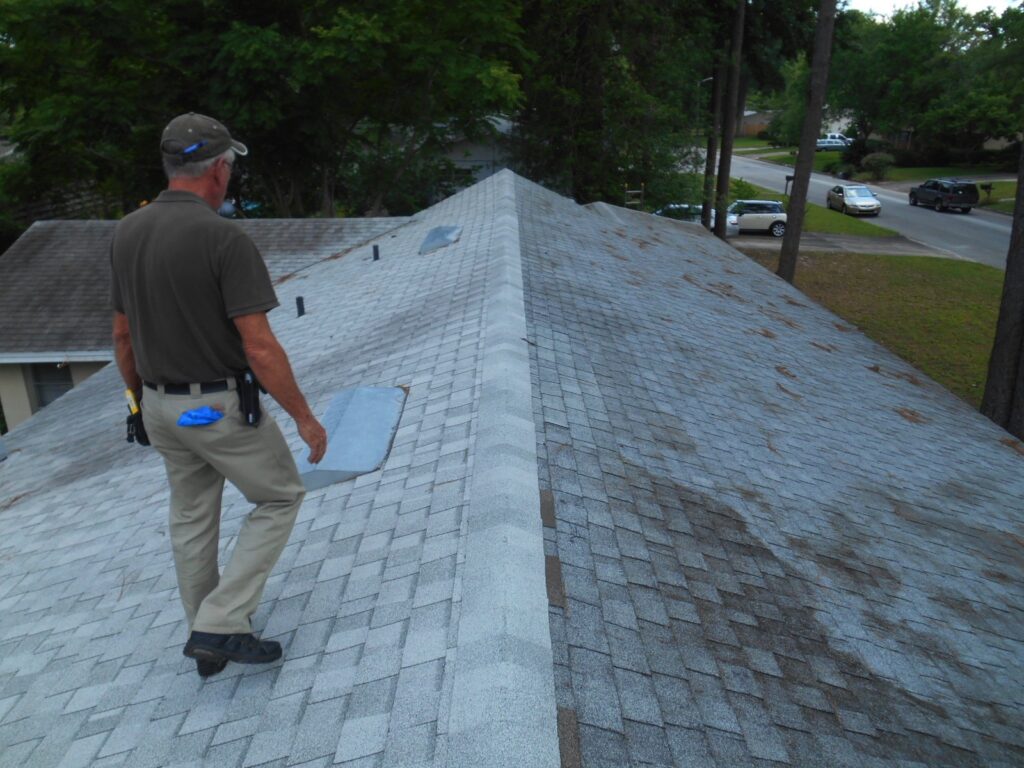

Consequences of Neglecting Roof Inspections
Neglecting roof inspections can have serious consequences that can impact not only the structural integrity of the roof but also the homeowner’s insurance coverage and financial well-being.
Insurance Policy Cancellations
Insurance companies often require regular roof inspections to ensure that the roof is well-maintained and not at high risk of damage. If a homeowner fails to comply with these inspection requirements, their insurance company may cancel or deny coverage, leaving them financially vulnerable in the event of roof damage or other related issues.
Safety Risks
A neglected roof can pose significant safety risks to the occupants of a home or building. Weak or damaged roofs may be more susceptible to collapse during severe weather events, such as hurricanes or heavy storms, putting the occupants at risk of injury or worse. Regular inspections help identify and address potential safety hazards before they escalate into dangerous situations.
Costly Repairs
Ignoring regular roof inspections can lead to costly and extensive repairs. By detecting and addressing small issues early on, homeowners can prevent them from becoming larger, more expensive problems. Roof inspections can identify leaks, damaged flashing, deteriorating shingles, and other issues that, if left untreated, can cause water damage, structural problems, and even the need for a complete roof replacement.
Conclusion
In Florida, roof inspections play a critical role in maintaining the safety, functionality, and longevity of residential and commercial roofs. From ensuring compliance with building codes and regulations to satisfying insurance requirements, roof inspections are essential for homeowners and property owners. By scheduling regular inspections, finding qualified inspectors, and addressing any identified issues promptly, individuals can protect their investments, avoid costly repairs, and maintain a secure and well-maintained roof. Don’t overlook the importance of roof inspections in Florida – they are a proactive measure that can save you time, money, and stress in the long run.

